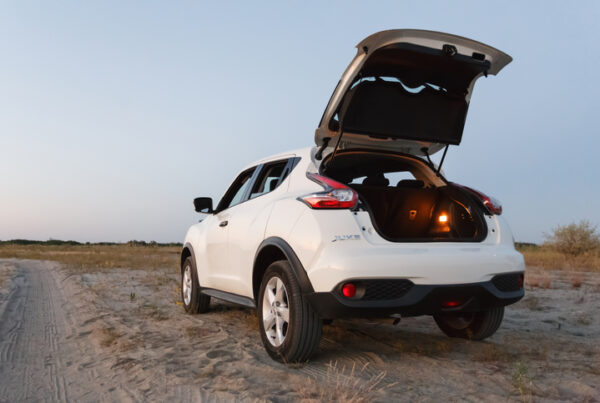As the holiday season approaches and the private use of our vehicles increasing, the focus shifts to ensuring the safety of our drivers and their families. With many planning road trips over the coming weeks there is a greater risk of vehicle overloading.
Impact of Vehicle Weight on Safety
Primarily, exceeding a vehicle’s weight limits can significantly compromise safety. It affects not only the vehicle’s structural integrity but also crucial components like suspension, brakes, and steering. These can lead to increased risks of accidents, especially during sudden maneuvers or emergency braking.
Overloaded vehicles also experience reduced maneuverability, longer braking distances, and compromised handling. The excessive weight affects the vehicle’s balance and stability, impacting its overall performance on the road.
Furthermore, overloading accelerates wear and tear on various vehicle parts. This can lead to increased maintenance costs and a shortened lifespan for the vehicle.
Pitfalls of Overloading
Overloading a vehicle often exceeds legal weight limits, leading to potential fines, penalties and insurance implications. It’s crucial to adhere to these regulations to avoid costly repercussions.
Overloaded vehicles are also more prone to accidents. This is because excess weight can lead to compromised handling, longer braking distances, and decreased stability. This endangers not only the vehicle occupants but also other road users.
In addition, overloading puts excessive strain on the vehicle’s suspension, tires, and braking systems. This often leads to premature wear and potential failures which could result in costly repairs or replacements.
Essential Tips to Avoid Overloading During the Holidays
With this in mind, managing fleet cars’ weight distribution to prevent overloading is crucial for fleet managers and operators. Here are essential tips for safe holiday travel:
- Know Your Vehicle’s Limits: Understand your vehicle’s weight capacities, including payload and gross vehicle mass. If towing a trailer or caravan, be mindful of the vehicle‘s gross combination mass limit. Check the owner’s manual or consult with experts to ensure you’re within legal and safe limits.
- Educate Drivers: Empower drivers with knowledge about weight limitations and safe loading practices. Encourage them to distribute weight evenly and prioritise safety.
- Educate Passengers: Encourage everyone to pack sensibly and considerate of weight limitations. Discuss the importance of safe loading to avoid unnecessary risks.
- Routine Maintenance: Regularly inspect fleet vehicles, especially before the holiday season. Ensure tires, suspension, and braking systems are in optimal condition to handle increased loads.
- Prioritise Safety: Avoid overloading by distributing weight evenly and securing luggage and other cargo properly. Consider using roof racks or cargo carriers to free up interior space.
- Assess Vehicle Weight: Before the trip, assess the expected load and consider the impact of accessories on the overall weight capacity of each vehicle.
- Data-Driven Decision-Making: Leverage available private usage data to inform your communication efforts and provide targeted and meaningful information on weight capacities and limits.
Prioritising safety during the holiday rush is crucial for all road users, not just fleet vehicles. By keeping safety at the heart of our operations during this time of the year, fleet managers can contribute to the safety of their drivers and families, and help ensure everyone makes it home during this festive season.
Did you find this article interesting? Give it a ‘like’ by clicking the ‘heart’ button above!




















